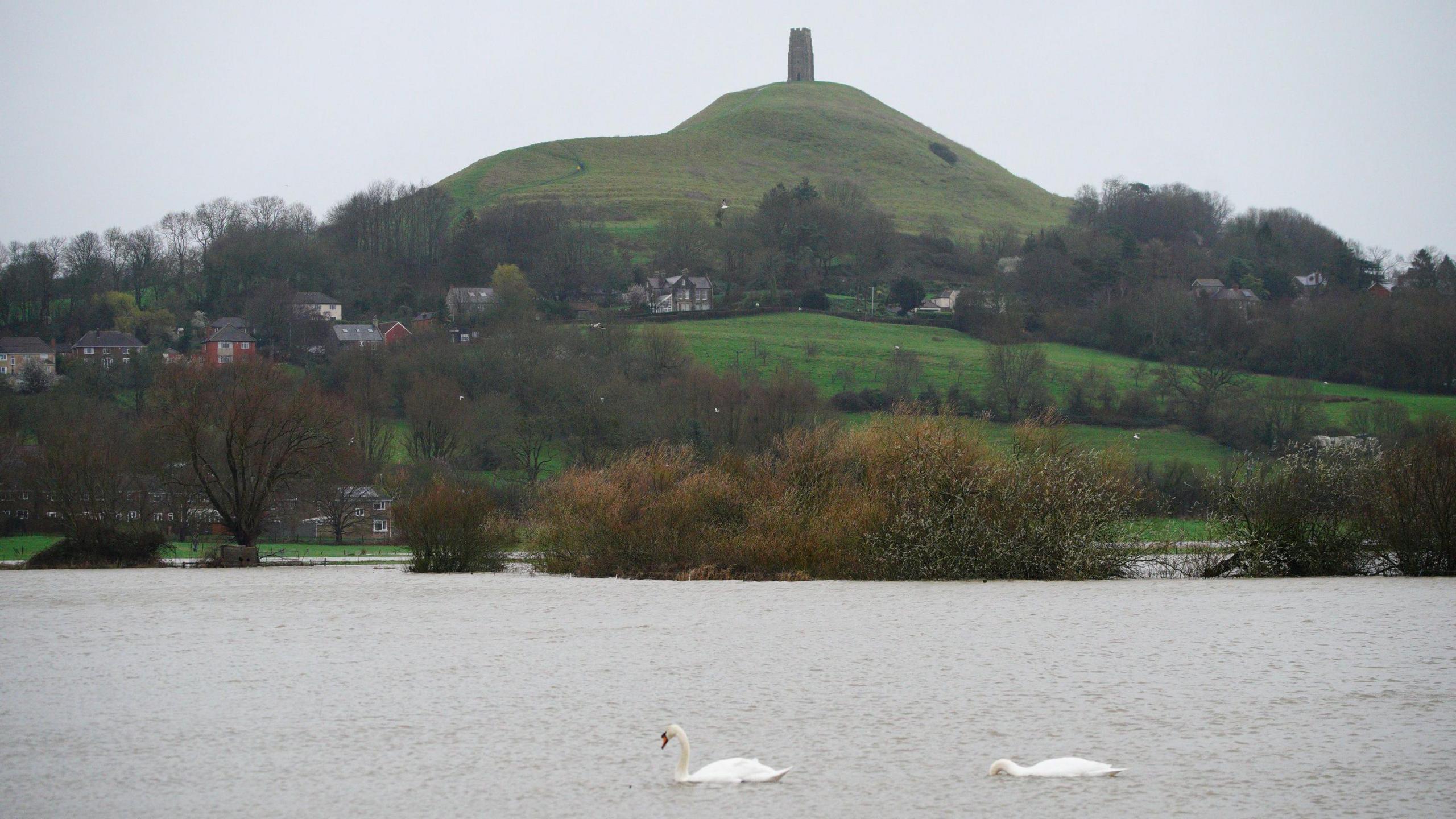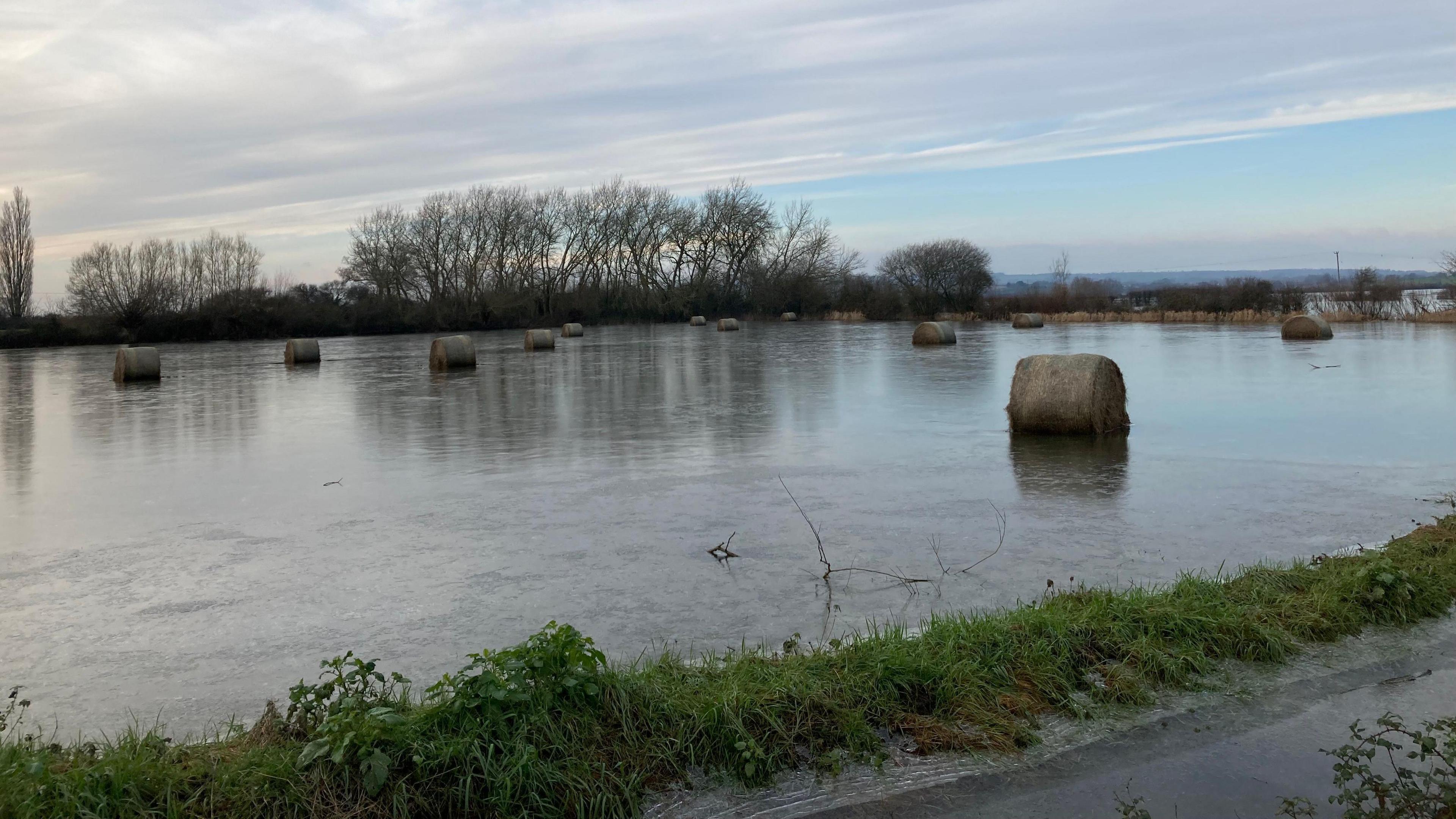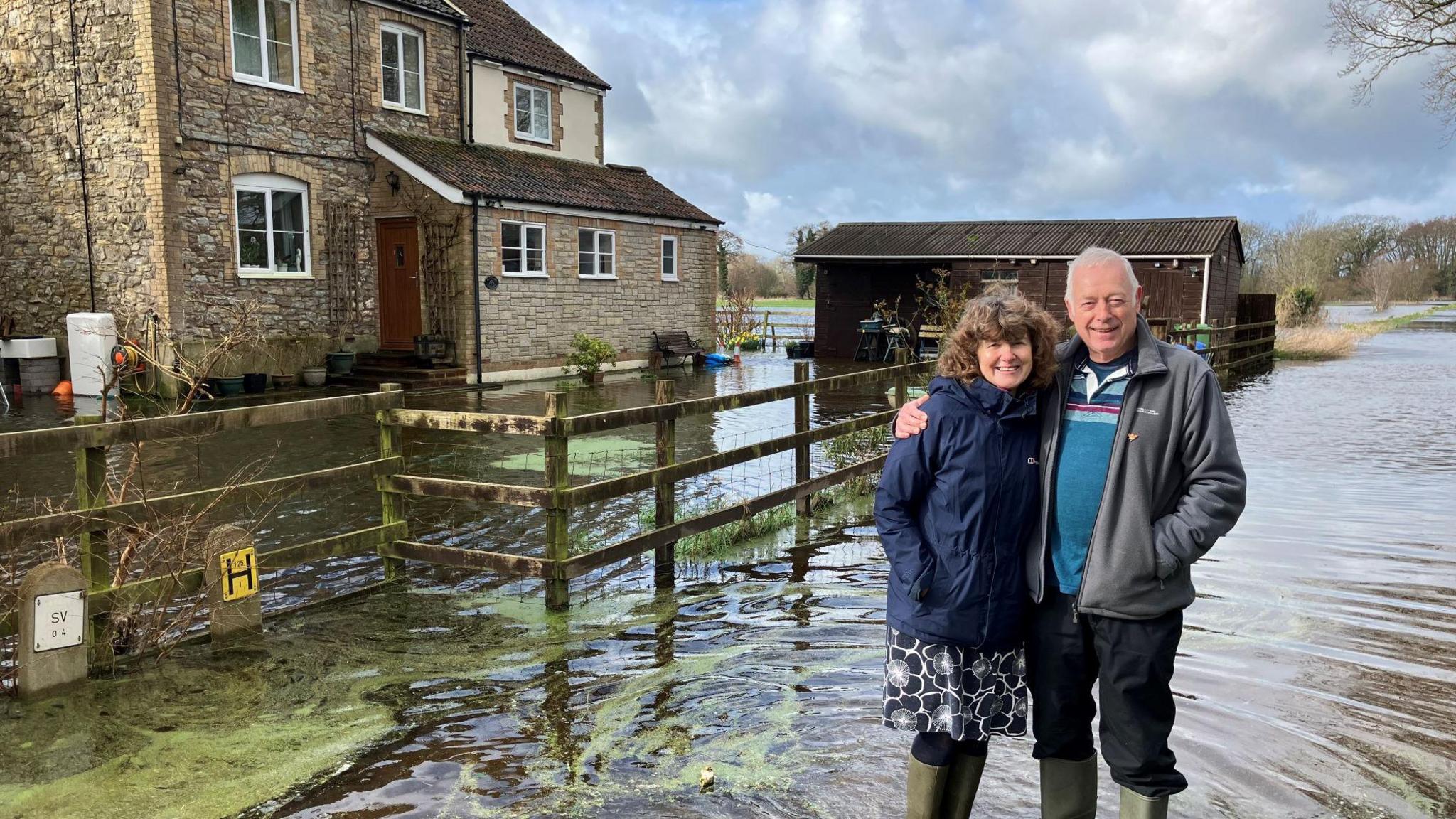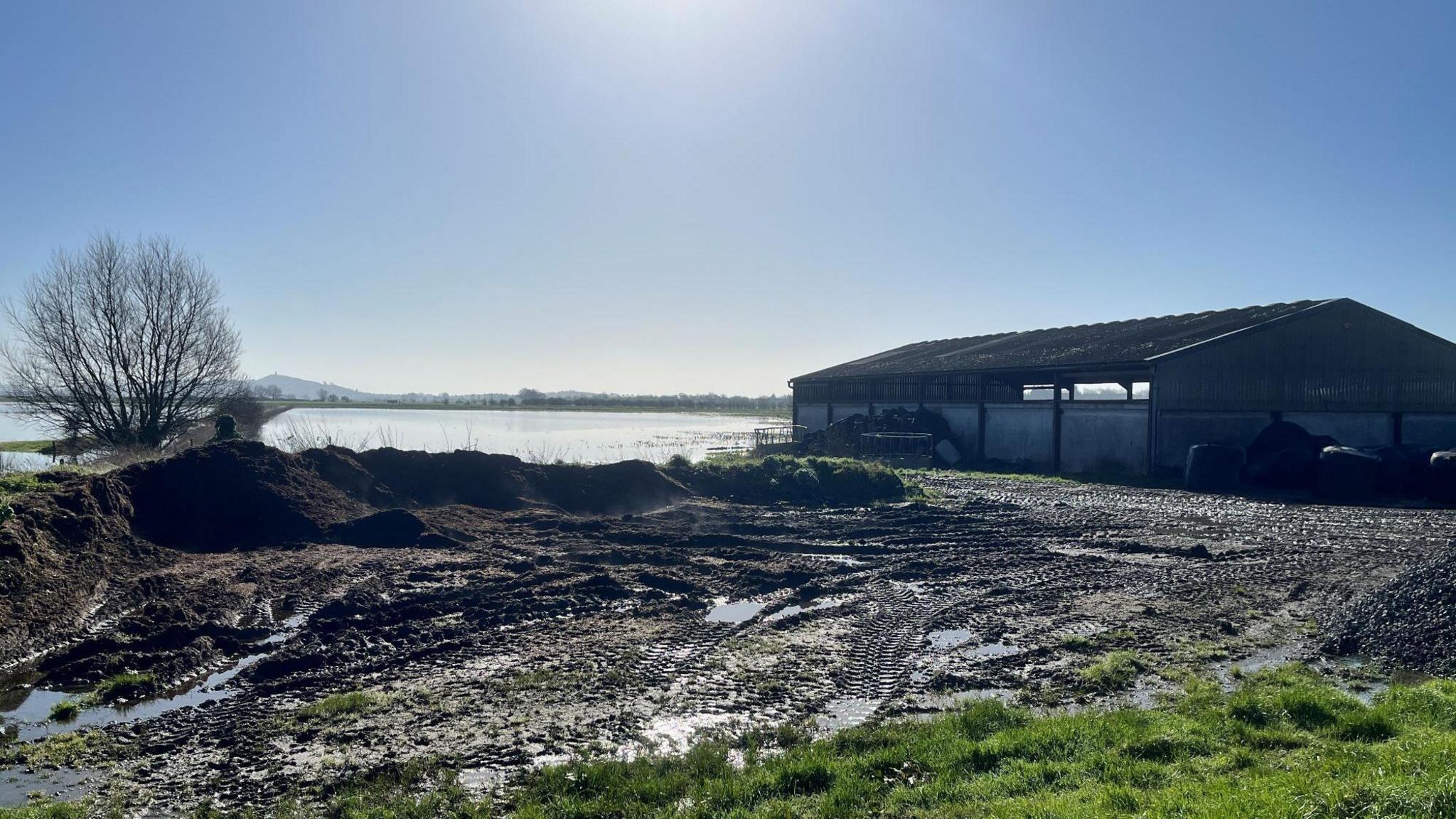Glastonbury gets 'climate action plan'

Glastonbury's community has put together a town climate plan
- Published
Glastonbury residents have created a bespoke plan to help the town deal with the impact of climate change.
It is the first such plan developed by Somerset Wildlife Trust which aimed to assist local communities in adapting to future changes.
Developed alongside the town council, the plan identified themes such as planting more trees, installing green walls and roofs and adapting to flooding.
The trust said with the new government recognising the impact of climate change, it wanted to help local communities to react to potential extreme weather events.

Somerset is particularly prone to flooding
Natalie Barnett, the climate adaptation officer at the Somerset Wildlife Trust told BBC Radio Somerset flood risks were due to the county's low-lying coastal areas.
"It's very dependent on its hydrology, which makes it really vulnerable to flooding.
"And also because of the wetland and peatland that we have is quite susceptible to drought."
Ms Barnett said the impact of climate change in the future will be negative, and explained it will damage habitats through drought, increase flooding risks, and drive food insecurity.
'Unpredictability'
She was hopeful the plans would lead to stronger communities and increased biodiversity.
Mike Stanton, the chair of the Somerset Rivers Authority which funded the plan, said: "Across Somerset floods have been increasing in intensity and unpredictability because of climate change.
"It’s a fascinating piece of work. It covers many parts of the town, right down to individual ponds, bus shelters and toilet blocks. If you’ve been not involved so far, please do get involved now."
As well as Glastonbury, the trust was also working on plans for Burnham-on-Sea, Highbridge and Minehead.
What is climate change?
Climate change is the long-term shift in the Earth's average temperatures and weather conditions.
Over the last decade, the world was on average around 1.2C warmer than during the late 19th Century.
It has now been confirmed that global warming exceeded 1.5C across the 12 month period between February 2023 and January 2024. That followed 2023 being declared the warmest year on record.
The temperature increase was driven by human-caused climate change and boosted by the natural El Niño weather phenomenon.
Get in touch
Tell us which stories we should cover in Somerset
Follow BBC Somerset on Facebook, external and X, external. Send your story ideas to us on email or via WhatsApp on 0800 313 4630.
Related topics
- Published6 February 2024

- Published4 March 2024

- Published8 March 2024
